Education
Anna Maria Jokl
Author, psychoanalyst, and scriptwriter Anna Maria Jokl was greatly influenced by the many places she lived: Vienna, Berlin, Prague, London, Zurich, and Jerusalem. Forced to flee countries twice because of Nazism, Jokl is best known for her German children’s books. Her prolific career includes accomplishments in radio broadcasting, psychoanalytic writing, and autobiographical prose.
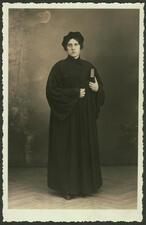
Regina Jonas
Regina Jonas longed to become a rabbi for most of her life, and despite significant obstacles, was ordained in 1935. As the first ordained female rabbi, she worked in Berlin until her deportation to Theresienstadt, where she continued to preach, teach, and inspire her fellow inmates until her final deportation to Auschwitz.
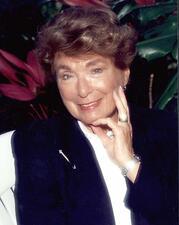
Geri M. Joseph
Geri M. Joseph, a pioneer in the acceptance of women in journalism and politics, was a prize-winning newspaper reporter, an American Ambassador to the Netherlands during the Carter administration, and the first woman to be elected to several business boards in Minnesota.
Norma Baumel Joseph
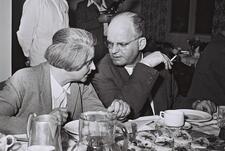
Senta Josephthal
Senta Josephthal was German-born Zionist activist who was particularly influential in the kibbutz movement. She trained and recruited young Germans to the movement and represented the kibbutz movement in national organizations and political arenas after emigrating to Palestine.
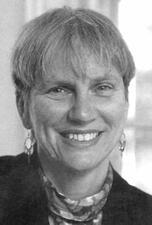
Judaic Studies in the United States
When the Association for Jewish Studies (AJS) was established in 1969 as the professional organization of scholars in the interdisciplinary field of Judaic studies, there were no women among its founders. Within the past few generations, however, a field that was traditionally dominated by men has gradually witnessed the emergence of many women scholars.
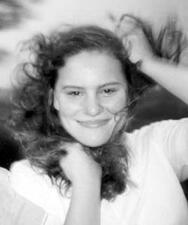
Hannah Jukovsky
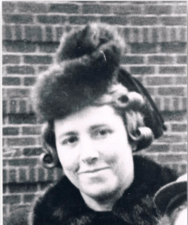
Irma Rothschild Jung
Irma Rothschild Jung, a native of Randegg, Baden, Germany, was born on July 1, 1897, and until her death close to a century later, dedicated her substantial energies to pioneering Jewish communal programs in aid of the needy. Her leadership and influence were deeply felt in the broader Jewish community by the countless individuals, young and old, who benefited from her generous spirit.
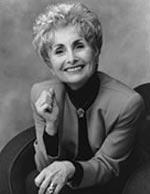
Esther Jungreis
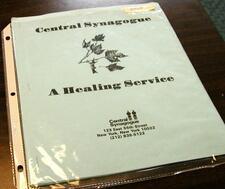
JWRC: Eleanor Leff Jewish Women's Resource Center
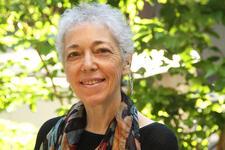
Hagar Kadima
Composer and visual artist Hagar Kadima was the first Israeli woman composer to earn a PhD in composition. She was also the founder and first chair of the Israeli Women Composers Forum.
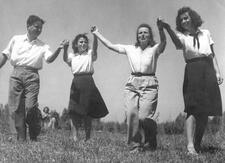
Gurit Kadman
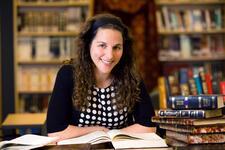
Lila Kagedan
Dorothy C. Kahn
During the Great Depression, Dorothy C. Kahn helped pioneer social work as a service provided by the government to all who needed it. Kahn developed, implemented, and advocated for social welfare programs and policies whose underlying principles upheld her deepest beliefs about what social welfare could mean in a democracy.
Margarete Kahn
German mathematician Margarete Kahn worked with fellow Jewish woman Klara Löbenstein and their essential contribution to a famed problem was cited in the publications of several others. Despite earning her doctorate and having a significant impact in her field, Kahn was unable to earn a post-doctoral degree due to discrimination against women, and she worked as a teacher until she was deported by the Nazis.
Regina Kaplan
Regina “Kappy” Kaplan was nurse, teacher, hospital administrator, and health care innovator. Most notably, Kaplan helped break down gender barriers in medicine by creating the first nursing school in the South that admitted male students.
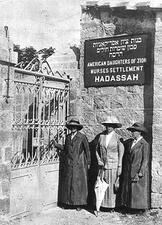
Rose Kaplan
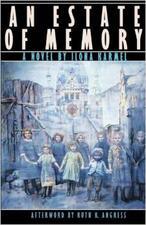
Ilona Karmel
Ilona Karmel transformed details of her experiences as a Polish-Jewish prisoner in Nazi work camps and as a patient undergoing a prolonged convalescence into two compelling and memorable novels. Karmel was a distinguished writer, winning a fiction contest from Mademoiselle and teaching awards from the Massachusetts Institute of Technology.

Ada Karmi-Melamede
Ada Karmi-Melamede (b. 1936) is a prominent Israeli architect. Her work includes a variety of public and private projects, among them the Supreme Court Building in Jerusalem and The Open University campus in Ra’anana. In 2007, she received the Israel Prize in architecture, the second woman to have ever received this prize.
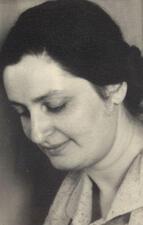
Hannah Karminski
During the mid-1920s and the 1930s in Germany, Hannah Karminski served as secretary of the League of Jewish Women and, from 1924 to 1938, as editor of its newsletter. After the forced liquidation of the League in 1938, Karminski remained in Germany and continued her work in the Reich Association of Jews in Germany, assisting with the kindertransports and welfare. She was deported to Auschwitz and murdered in 1942.
Fay Berger Karpf
Fay Berger Karpf made major contributions to social science with her analysis of the history of social psychology and specifically with her support of the psychoanalyst Otto Rank. She taught for many years and wrote several books about the profound influence Rankian theories had on American psychoanalysis.
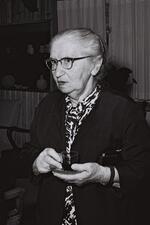
Rahel Katznelson

Shulamith Katznelson
Shulamith Katznelson helped make Israel a home for a wider range of people as both a pioneer of Hebrew-immersion programs and an advocate for Israeli-Palestinian dialogue.
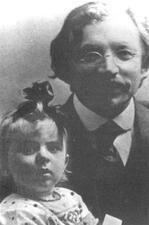
Bel Kaufman
Bel Kaufman was the author of Up the Down Staircase, a novel that gently parodied the public school system in New York City. Published in 1964, the book went on to sell six million copies, spent 64 weeks on the best-seller list, and inspired a film adaptation in 1967 and a popular school play. She was also the granddaughter of Yiddish writer Sholem Aleichem, whose stories formed the musical Fiddler on the Roof.
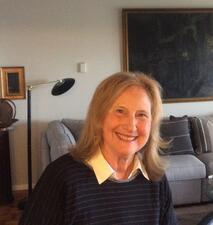
Debra Renee Kaufman
Debra R. Kaufman has been a central voice in sociology, feminist studies, and Jewish Studies for over four decades. Her scholarship has spanned topics such as the role of women in Orthodox Judaism, post-Holocaust Jewish identity narratives, and contemporary American Jewish identity.


